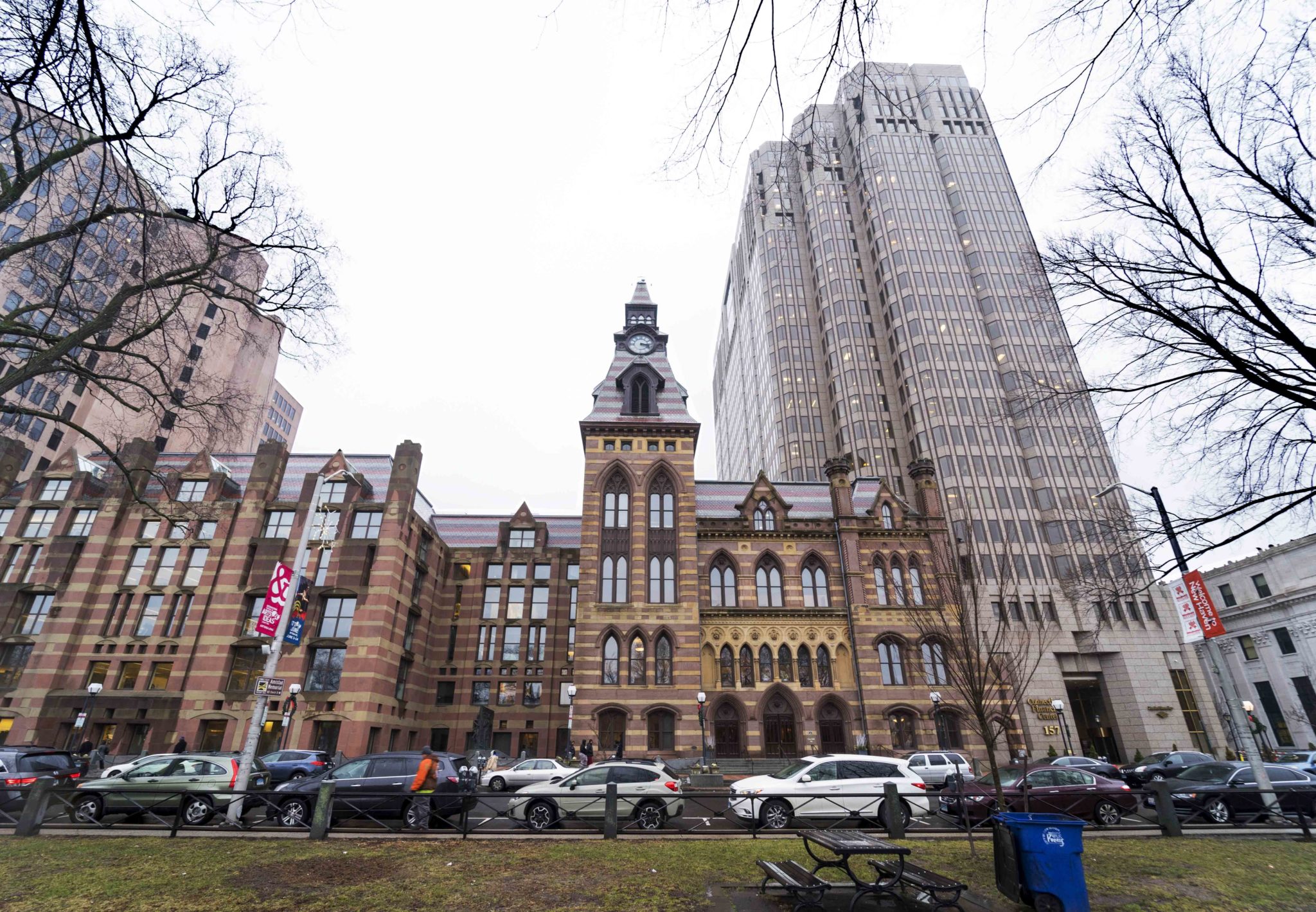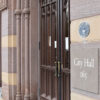Alders pass amended ‘Forward Together’ budget without secured funds from state, Yale
Just under three months after Elicker introduced two budgets, the Board of Alders passed the optimistic one.

Nat Kerman, Contributing Photographer
The Board of Alders approved an amended version of Mayor Justin Elicker’s “Forward Together” Fiscal Year 2021-2022 budget on Wednesday evening. The budget assumes the city will receive an additional $53 million from Connecticut, Yale University and Yale New Haven Hospital — funds that have yet to be secured.
The operating budget totals $606,344,052. It will not enact the cuts to Westville’s Mitchell Library, the East Shore Senior Center and the Whitney Avenue fire station included in the “Crisis” budget, which totaled just over $589 million. It will also avoid the “Crisis” budget’s proposed 7.75 percent tax hike.
The approved budget differs slightly from Elicker’s “Forward Together” budget. Changes include lowering the proposed $3 million increase in the Board of Education budget to $1.5 million and allocating $500,000 to programs that support the legislative agenda the board approved in March.
Twenty-seven alders voted to approve the budget, two voted against it and one did not vote. Following the board’s approval of the budget, it moves back into the mayor’s hands; Elicker has the chance to veto or amend the budget before it takes effect on July 1. In a press release issued Wednesday night, Elicker expressed gratitude to the board for passing the budget.
“This budget makes critical investments into public safety, education, job training, and affordable housing — to name a few key areas,” Elicker wrote. “It also implements important fiscal reforms by limiting the debt issued and increasing investments to begin to shore up our pension fund. The budget puts us on a more sustainable financial trajectory all without increasing the mill rate.”
But looming over the decision was the set of assumptions that the budget makes. In the press release, the mayor wrote that “it’s up to Yale University to invest more in our city and the state legislature and Governor Lamont to make the long overdue reforms to PILOT in order to make this budget a reality.” For the 27 alders who voted to approve the budget, not knowing how much funding New Haven will receive from Connecticut and the University was not enough to dissuade them from giving the green light. But for two alders — Ward 10 Alder Anna Festa and Ward 7 Alder Abby Roth, it was.
The Connecticut General Assembly’s passage of a tiered Payment in Lieu of Taxes, or PILOT, program — which allocates more state funds to cities like New Haven that have high proportions of tax-exempt property — means that city officials expect the Elm City to receive an extra $49 million toward the $53 million threshold required for the budget to go into effect. What is much more uncertain, Roth and Festa said, is the additional $4 million that would have to come from Yale. The University would need to raise its contribution to the city from $13 million to $17 million.
The city will know how much funding it will receive through PILOT in two weeks when the state budget is released. But there has been no publicized timeline for the Yale-New Haven negotiation process.
“How can we vote on a budget that has so many assumptions?” Festa asked. “Some of those assumptions are not as obvious as others. As far as the additional funding from Yale, we have not received any reports, any updates from the committee that was assigned to negotiate with Yale. Where’s the transparency in this process?”
Festa also questioned why nobody from the board — the branch of government that votes on the budget — would be “at the table” in the University negotiations.
University spokesperson Karen Peart told the News Wednesday evening that she would not immediately be able to provide a comment on the status of these negotiations and the alders’ assumption that Yale could fill the $4 million gap.
Those who did vote in favor of the budget held that it is Yale’s responsibility for filling the gap. Ward 9 Alder Charles Decker said New Haven’s budget crisis has never been a spending problem, but a “structural revenue problem.”
“I could go on at length about the tax break that our city grants [Yale] year after year,” Decker said. “But the good news is that you don’t have to take it from me, because you heard hundreds of residents at our public hearings this year saying loud and clear that Yale must respect New Haven.”
Indeed, Yale’s contribution to the city dominated public hearings this spring. The University has repeatedly emphasized that its contribution to the city far exceeds that of its peer institutions, and that the current voluntary payment of $13 million is significantly higher than what it was in years prior. But New Haven residents have taken to the streets this year to protest a payment that they say pales in comparison to Yale’s $31 billion endowment.
Aside from concerns about the uncertainty surrounding the budget, discussion on Wednesday night focused on the new entry that the finance committee added to its amended version of Elicker’s “Forward Together” budget — the $500,000 allocated to legislative agenda priorities.
The agenda includes five priorities: jobs for New Haveners, public safety, health equity, environmental justice, and quality and affordable housing. Programming for each priority will receive $100,000. Several alders supporting the funding reiterated the importance of these priorities.
“When I think about my role on this board as an advocate for residents, first and foremost I think about their safety, and I think about the fact that they have homes,” Ward 8 Alder Ellen Cupo said. “I rise this evening in support of this amendment because we need new affordable housing. Housing is a human right, and housing provides for a better life and a safer life.”
Elicker’s budget proposal was released on March 1.
Interested in getting more news about New Haven? Join our newsletter!









